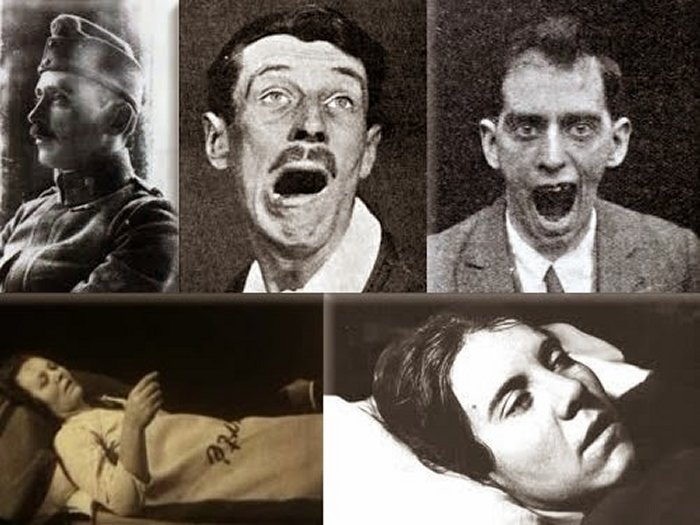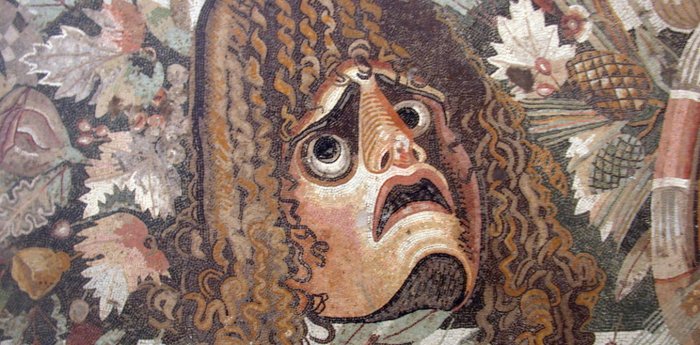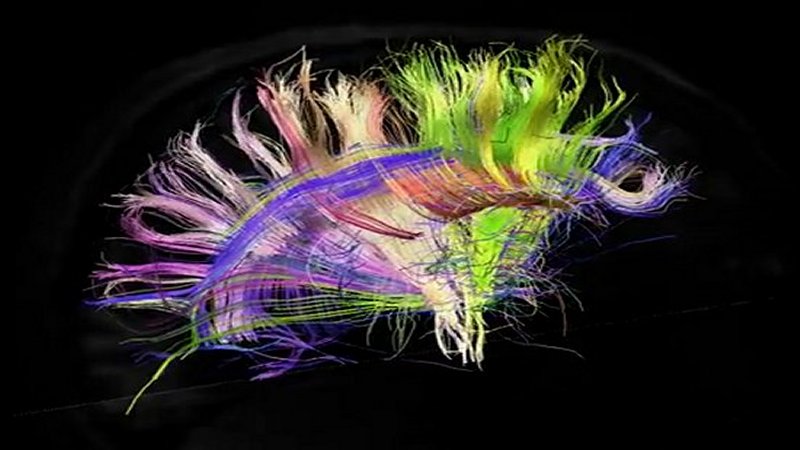Encephalitis Lethargica: Mysterious And Horrifying Epidemic Of The 20th Century
MessageToEagle.com – Encephalitis Lethargica is the name of a mysterious and horrifying epidemic of the 20th century. The baffling disease has long been considered one the biggest medical mystery of all time.
Victims of Encephalitis Lethargica became living statues, speechless and motionless. Something attacked the brain and triggered this horrible condition.
What Was Encephalitis Lethargica?
Beginning as early as 1916, and continuing well into the 1920s, nearly a million died, and millions more were left frozen inside their useless bodies, in institutions.
No-one knew what had caused it, or how to treat the disease.
Although, the disease affected people of all ages, it seemed young people, particularly women, were the most vulnerable.
The symptoms started with a sore throat and fever, followed by a headache. This followed by double-vision and extreme weakness.
Within hours, most of the victims were gripped by episodes of tremors, strange bodily movements, intense muscle pains, and delayed mental response. Soon the victim suffered psychosis and hallucinations and many infected people became completely unresponsive.
The mysterious disease was given the name Encephalitis lethargica, which literally means “inflammation of the brain that makes you tired,” but it was more commonly known as “sleepy sickness.”
People In Several Countries Were Affected
The mysterious disease was not limited to one country, or one continent. Patients showing symptoms of Encephalitis lethargica were reported world-wide.

In Vienna, Austria, clinics filled with patients nodding off, nervous spouses or parents explaining how they’d sometimes fall asleep walking or while chewing food. They displayed tics and repeated words and their eyes seemed disconnected from their brain, unfocused and unable to register neighboring surroundings. Similar cases were reported in London and New York.
Queen Mary Hospital in London took six brain samples from expired patients and sealed them in wax. If they couldn’t find a cause or cure, maybe another generation could.
Can The Encephalitis Lethargica Strike Again?
According to virologist Professor John Oxford, the disease was not just a disease of the past. It never went way and as an expert on the condition, he is convinced that it could reappear.
“I certainly do think that whatever caused it could strike again. And until we know what caused it we won’t be able to prevent it happening again,” Professor Oxford said.
In 1993, 23-year-old Becky Howells suddenly became very ill. She started shaking, becoming feverish and hallucinating.
Within hours she had become critically ill and was rushed to hospital. Doctors had no idea what was wrong.
They knew her brain was dangerously inflamed, but had no idea what was causing it.
Becky was suffering from Encephalitis Lethargica – a disease that had last appeared over 70 years before and it was just as baffling now as it was then.
Professor Oxford was convinced that the solution lay in the past. He tracked down brain tissue samples from the original 1920 victims and tested them, looking for traces of a virus that could have been responsible for the outbreak all those years ago.

But despite exhaustive testing with the latest molecular probes, there was no evidence of any virus – flu or anything else.
Becky gradually recovered, but it was two years before she could restart her life.
See also:
Walking Corpse Syndrome: People Who Believe They Are Dead
Mystery Of The Bloody Island Poveglia – A Place Of Hell In Ancient And Modern Times
Why Loneliness And Chronic Stress Are Dangerous For Your Health
After Becky more cases of Encephalitis Lethargica were reported, but how can doctors fight the disease when understanding encephalitis lethargica better would, perversely, require fresh victims? Another option is that researchers would need to obtain more brain samples than the dozen or so that have been examined thus far.
Professor Oxford and his colleague Dr Andrew Church tried to unravel the mystery of Encephalitis Lethargica.
Together they discovered evidence of a rare form of streptococcus bacteria in all their patients.
The bacteria that can cause a simple sore throat had mutated into a much more severe form and triggered the attacks of encaphilitis lethargica.
Despiite this significant discovery, there is still little we know about this mysterious disease. Funding is scarce and an absence of research could leave medicine unprepared for another outbreak.
“You never truly know whether the thing could come back again,” Oxford says. “It’s a bit of a pity, and a bit of a danger.”
MessageToEagle.com










